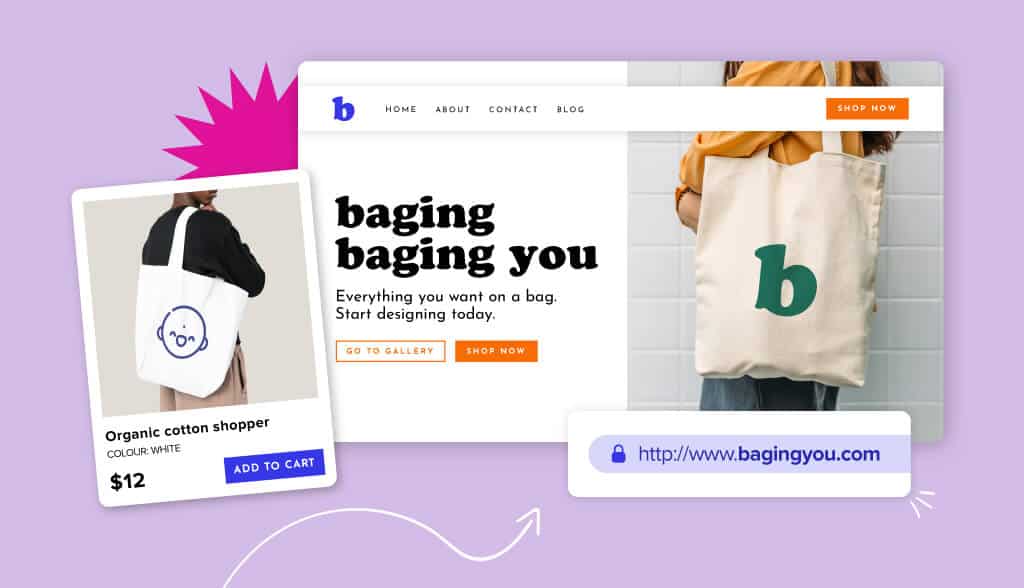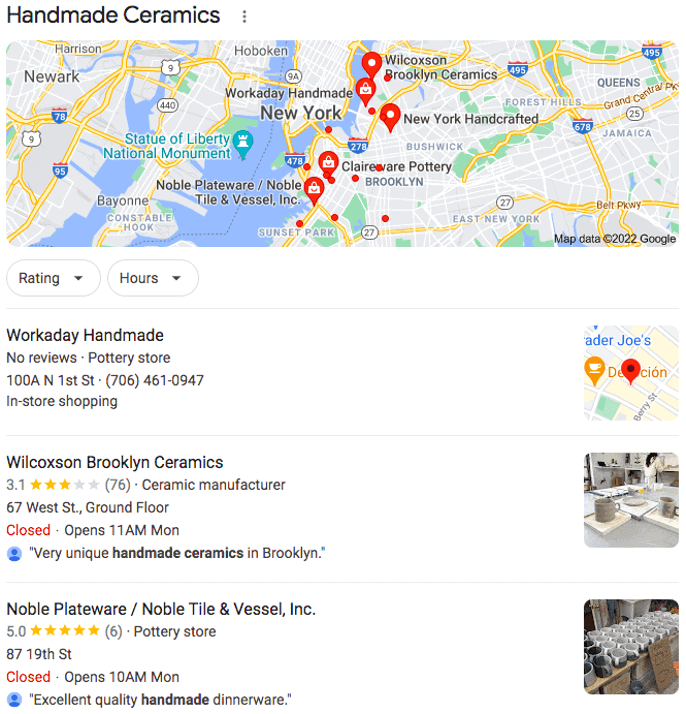
When I moved from an almost always sunny climate to New York City in the dead of winter, I quickly realized my dog was ill-equipped to deal with the drastic change in weather. When he encountered snow for the first time, he gave me this look that said, “What did I do to deserve this?”
So, I needed to buy him a pair of snow boots. Sounds simple, right? Wrong.
The dog apparel business is paws-itively saturated, and with all the brands out there, I didn’t know which one to choose. I spent countless hours scouring the internet researching brands, checking out the ‘about us’ page, and reading testimonials and reviews before ever pressing the purchase button.

Though that might sound over the top, the way I made my purchasing decision is quite normal. In fact, a study has found that 81% of consumers do extensive online research—starting with the retailer’s website—before making a purchase.
So out of all those other brands, why did I pick the one that I did? It came down to their website.
Their website sold me. First impressions count and theirs left a good one. The testimonials on their homepage told me other dog parents were extremely happy with the brand. Their FAQ page answered all of my questions and concerns. Even the website’s aesthetic was on-point (nothing sells like a strong logo and color scheme).
Ultimately, I liked and trusted the business because of their website.
All that to say, your small business needs a website. You might be telling yourself you aren’t tech-savvy enough (you don’t need to be), it’s too expensive (it isn’t), or you don’t need a website anyway (you do).
By the end of this post, you’re going to know all the reasons why your business needs a website and how you can get started today.
You might be hesitant to open a website for your business for a whole bunch of reasons. Maybe you’re telling yourself that you don’t understand how to manage a website or are concerned about the price.
But most of the time, the perceived and actual barriers to creating a website for your business often don’t match.
Let’s go over (and debunk) the 3 most common reasons why many business owners don’t have a website:
How do you start a website for your business as a non-technical person? That’s a good question many new business owners ask themselves.
Fortunately, there are many business website builders out there that have a very simple process to make it as quick and painless as possible.
A few website builders to check out:
As a new business owner, money can be tight at times, and you might think that starting a website could be over your budget. But actually, you’re missing out on an inexpensive opportunity to get online.
You can get a basic website online for free, but depending on your specific needs, you may want to incorporate paid features or hire a web designer. That might be costly, though.
The good news is there are plenty of inexpensive website builders:
Sure, you can sell online without a website. But, as Bill Gates put it: “If your business is not on the Internet, then your business will be out of business.”
Having a website can save you time communicating with potential customers, allow you to position yourself in the market to reach the right people, attract more potential customers to your business, and more.
Let’s take a look at how a website can benefit your business.
Regardless of the industry you’re in, having a website can make or break small businesses.
Here are the top reasons why it’s important for your business to have a website:
Let me ask you a question: Would you trust a business that doesn’t have a website? I know for me the answer is no. Why? Because a business without an online presence in the 21st century is, well, odd.
And this is backed by research! 56% of people stated that they don’t trust a business without a website. Consumers want to connect with businesses more than ever, and establishing a website allows them to do so. This is especially important for small businesses just starting out.
A website adds credibility to your business by simply being searchable on the web, but more importantly, you need your website to make a strong first impression. First impressions count a lot and consumers judge a website by its cover, so to speak. Another stat for you: People form an opinion about a web page’s visual appeal within 50 milliseconds! (Talk about pressure!)
Having a good website instantly boosts your web-cred as a legitimate business.
Wherever you are on your business journey, you need to develop your brand. (If you haven’t, I recommend you check out branding 101.)
Your brand is the perception that you intentionally cultivate and constantly communicate to your target audience through visual and verbal cues (read: Your website).
You can think of a branded website as your business’s personal profile, with a combination of visuals, colors, and strong written copy that together create a cohesive picture of your brand’s personality.
Having a branded website is critical because it helps potential customers identify your products or services, distinguishes you from competitors, and creates a persona that your customers connect with.
A website is an endpoint for all other marketing efforts. Let’s say you’re hosted on a podcast; encourage listeners to get more information on your website. Link your website URL in your social media posts. Place it on your business cards. You get the idea!
Furthermore, your website allows you to control how people perceive your business. Not only does a website provide a way of creating and communicating your business’s core values and mission, it also gives you a platform to tell potential clients about your business.
Clearly communicating who you are, what you do, and why you do it increases the chances of having customers come back to you time after time. And let me tell you, developing brand loyalty is an endgame.
As a business owner, your time is limited and precious. And communicating with potential customers takes time. A website can save you that time by providing answers to common customer questions.
Maintaining reliable, consistent communication will strengthen customer relationships, which is critical for building customer loyalty and resulting in an increase in sales.
To put it simply, customer service is really important.
Case in point: Chewy, the leading seller of pet food online. Chewy was able to master the art of providing unbeatable customer service. One team objective is to answer an incoming inquiry within 6 seconds!
Their “customer-first culture” is what sets them apart from competitors. Just take a look at this video to see what I mean:
That being said, a website is the main way you can provide excellent customer service 24/7. Moreover, a website can promote your business and make sales even when you’re off the clock.
Tip: Put all of your important business information in one place. Add information such as:
When you need to find a product or service, the first place you go to is Google, right? If I need a ceramics store in my area, I type it into Google Search and check out the first few listings.

Having a website will enable you to reach a larger audience to advertise your products or services to. Without a website, you lose potential business from people who’re looking for the exact thing you’re offering.
Let’s say you’re a local artisan specializing in handmade ceramics. A client purchased a lovely vase from you a few months ago and their friend visiting from out of town wants to buy it as well. But, they’re leaving town before your store opens Monday morning.
Without a website, you lose out on a potential customer. With a website, though, they could simply log on and buy from your shop. The customer—and you—are happy!
You’re not alone in the market. There are (probably) dozens of other companies selling the same products and services that you do, and I bet most of them have their own website.
That means they’re already benefiting from all the previous points discussed: They appear more credible in the market, they’re already built a certain amount of trust with their target audience, they’ve got the customer service down.
So how do you compete—and surpass—them?
Well, what’s for sure is by not having a website, you’re already allowing competitors to have a leg up. If you have a website, you can incorporate elements that your competitors are missing from their website.
Before Glossier became a beloved skincare brand, it was simply a blog intended to share beauty related content. That “Into the Gloss” blog turned into a beauty empire that closely interacts and responds to their audience’s delights and dilemmas. Their website provides more than products—it provides knowledge and a sense of community. No one else in the skincare industry is doing it like them!

Maybe take a leaf from Chewy’s book and offer exceptional customer service, or create a tight-knit community like Glossier. But most of all, bring your own unique approach to provide something extraordinary only you can offer!
A website establishes your company’s online presence and is an important resource for attracting leads and guiding customers through the purchasing journey.
Ready to create a website for your business? Head to the Tailor Brands studio and start creating!
This portion of our website is for informational purposes only. Tailor Brands is not a law firm, and none of the information on this website constitutes or is intended to convey legal advice. All statements, opinions, recommendations, and conclusions are solely the expression of the author and provided on an as-is basis. Accordingly, Tailor Brands is not responsible for the information and/or its accuracy or completeness. It also does not indicate any affiliation between Tailor Brands and any other brands, services or logos.
Products
Resources
©2025 Copyright Tailor Brands